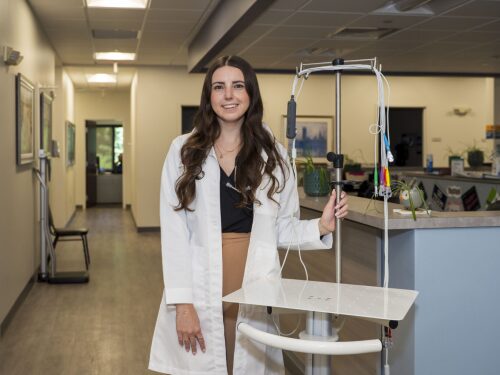As nonprofits across the country scramble to provide more food aid, a group of Rhode Island service organizations is suing the federal government, seeking to unlock the SNAP benefits frozen by the government shutdown.
Trump administration officials say that, due to the shutdown, the Supplemental Nutrition Assistance Program, formerly known as food stamps, will be cut off on Saturday.
The nonprofits filed the lawsuit Thursday in federal court in Providence. They are joined by the Rhode Island cities of Providence, Woonsocket and Central Falls, as well as national cities including Baltimore, Columbus, Albuquerque, Durham and New Haven. The National Council of Nonprofits and the Service Employees International Union also are parties to the lawsuit.
In court filings, the Rhode Island State Council of Churches says the St. Peter and St. Andrew Episcopal Church in Providence is diverting resources from its ministry to women recently released from prison to provide more food aid to people who won’t get their expected SNAP benefits.
The Milagros Project, based in Woonsocket, says it will be forced to end its violence prevention program in order to meet the increased demand for food assistance. The East Bay Community Action Program reports that it has already spent $85,000 of its unrestricted funds on emergency food purchases.
The cities, too, say they will be harmed by the expected lack of SNAP benefits for the people they serve. Central Falls, the filings say, “expects to experience a dramatic increase in demand for City services and programs as a result of the SNAP suspension.” It expects to expend “significant financial resources,” including overtime pay for staff and expanded hours at city facilities.
Some 42 million Americans receive SNAP benefits on a monthly basis, including more than 140,000 Rhode Islanders and 1.1 million people in Massachusetts.
A federal judge in Boston on Thursday heard a separate challenge to the SNAP freeze from a series of Democratic governors and attorneys general from more than two dozen states, including Rhode Island and Massachusetts.
The U.S. Department of Agriculture, which oversees the SNAP program, did not immediately respond to a request for comment.
This is a developing story and will be updated.







